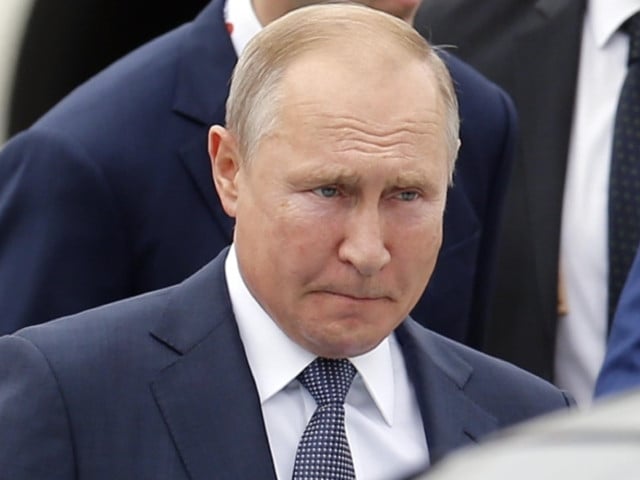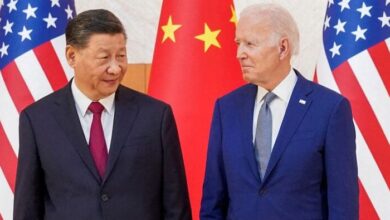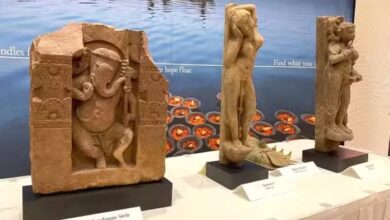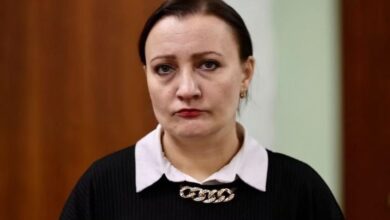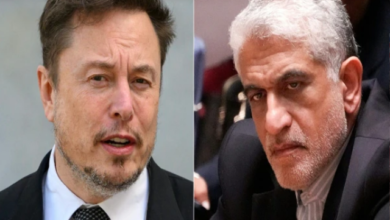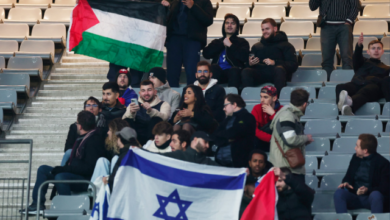Ukraine has reminded Turkmenistan of the International Criminal Court (ICC) arrest warrant issued for Russian President Vladimir Putin ahead of his visit to the Central Asian country.
The Ukrainian Ministry of Foreign Affairs called on all nations, including Turkmenistan, to recognize Putin as a war criminal due to his alleged involvement in the unlawful deportation of Ukrainian children from occupied areas of Ukraine to Russia.
In a statement released on Thursday, the ministry emphasized that Putin and other Russian leaders are responsible for a variety of crimes committed during Russia’s ongoing invasion of Ukraine.
These include acts of aggression and war crimes that have caused immense suffering to the Ukrainian people.
The ministry urged countries that “value human life, respect international law, and uphold the UN Charter” to refrain from participating in joint events with Putin, further stating that such engagement with him undermines justice.
Ukraine also reiterated the importance of supporting President Volodymyr Zelenskyy’s 10-step peace formula, introduced during the 2022 G20 summit in Indonesia.
The plan, Kyiv argued, remains the most viable solution for ending Russian aggression and restoring lasting peace in Europe.
The Ukrainian government’s statement comes as Putin prepares to visit Turkmenistan’s capital, Ashgabat, to participate in a forum commemorating the 300th anniversary of renowned Turkmen poet Magtymguly Pyragy.
Ukraine sees this visit as an opportunity to raise awareness of the ICC’s ongoing arrest warrant for Putin.
The ICC issued the arrest warrant for Putin in March 2023, accusing him of overseeing the illegal deportation and transfer of Ukrainian children to Russia.
The charges are part of broader allegations related to Russia’s invasion of Ukraine, which began in February 2022 under the guise of a “special military operation.”
Prosecutor Karim Khan requested the warrant, citing war crimes committed in the context of Russia’s occupation of Ukrainian territories.Despite the ICC’s ruling, Russia has dismissed the allegations.
Russian officials have insisted that the evacuation of children from conflict zones was a humanitarian act aimed at protecting their lives, and they assert that the ICC has no jurisdiction over Russia, as the country is not a party to the court’s Rome Statute.
Ukraine, however, continues to push for justice on the international stage, appealing to global institutions and individual nations to enforce the ICC’s decision.
The call comes amid growing international efforts to hold Russian leaders accountable for crimes related to the invasion of Ukraine.
Putin’s visit to Turkmenistan is part of his broader diplomatic strategy to strengthen Russia’s ties with Central Asian nations, despite mounting international condemnation.
Earlier in September 2023, Putin visited Mongolia, another ICC member state, without facing any arrest despite the warrant.
This led to criticism from the European Union, which expressed disappointment that Mongolia, as a signatory to the ICC, did not fulfill its obligations under the Rome Statute to detain the Russian leader.
The Mongolian government defended its position by citing its dependence on Russian energy imports, explaining that arresting Putin could jeopardize the country’s economic stability.
However, the incident sparked further debate over the enforcement of international law and the geopolitical complexities involved in holding powerful leaders accountable for war crimes.
As Putin prepares for his Turkmenistan visit, Ukraine’s reminder of the ICC arrest warrant serves as a pointed diplomatic message, urging countries to prioritize justice and accountability over political and economic interests.
With continued international focus on the crimes committed during Russia’s invasion of Ukraine, the pressure on Putin and his government remains strong.
Russia’s invasion of Ukraine, launched in February 2022, has resulted in widespread destruction, numerous civilian casualties, and ongoing military conflict.
The war has drawn international condemnation, leading to sanctions against Russia and its leaders, including Putin.
The ICC’s involvement represents one of the most significant international legal actions taken against a sitting head of state in recent history.

